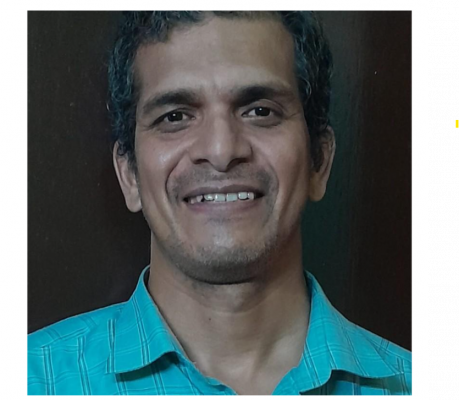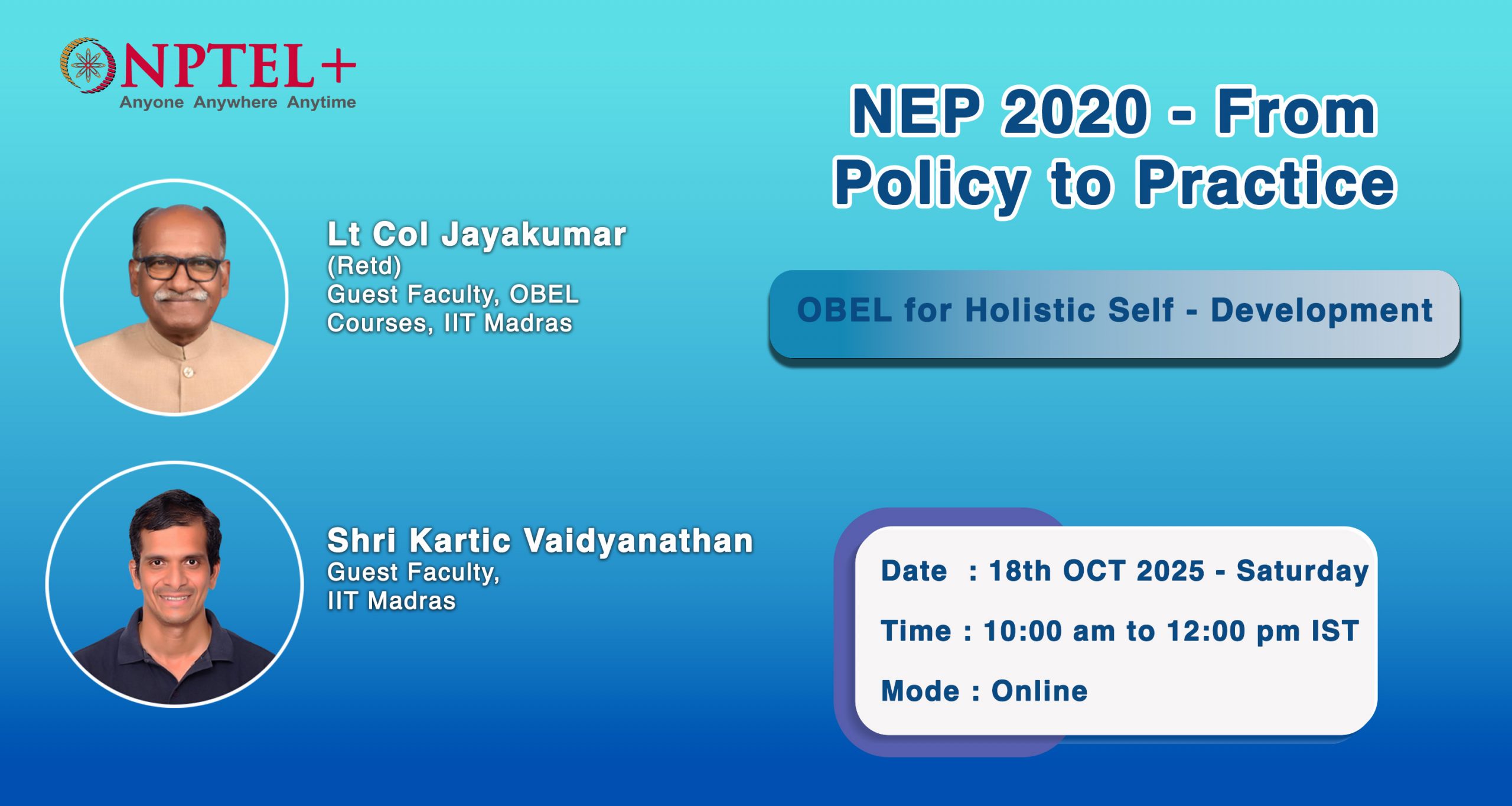About the workshop
Best Practices in Education
(Under this main theme, 4 live-workshops on different topics would be organized every month, each with a unique feature and student – centric approaches)
Workshop 1: 18th Oct, 2025
Workshop 2: 15th Nov, 2025
Workshop 3: 20th Dec, 2025
Workshop 4: 24th Jan, 2025
This monthly workshop series (2 hours each) focuses on the key best practices recommended by the National Education Policy 2020. Each session highlights one major theme—such as holistic and experiential education, social-emotional learning, integration of Indian Knowledge Systems (IKS), and technology-integrated education (including AI in teaching and learning). The series will feature a blend of conceptual inputs, case studies, and interactive activities that participants can directly apply in their classrooms or institutional contexts.
Workshop – 1 : OBEL for Holistic Self-Development
Description of the workshop
Outcome-Based Experiential Learning (OBEL) is a structured yet flexible framework designed to nurture holistic growth among students by going beyond traditional academic instruction. It integrates learning outcomes with practical, reflective, and participatory experiences that build not only knowledge, but also values, skills, and attitudes required for personal and professional success.
At its core, OBEL emphasizes self-discovery, discipline, teamwork, resilience, and purpose-driven learning. Students are guided through structured activities and reflective practices that strengthen their emotional, social, and ethical dimensions alongside academic excellence. Unlike conventional pedagogy, OBEL leverages real-world simulations, group exercises, and reflective journaling to help students internalize key life lessons and apply them in meaningful contexts.
This two-hour session will feature an interactive conversation with Lt Col Jayakumar (Retd), who has been pioneering OBEL in institutional settings. Drawing from his extensive experience, Col Jayakumar will share best practices, implementation strategies, and transformative stories that illustrate how OBEL fosters leadership, empathy, and self-awareness among learners. The session will also highlight faculty’s role as facilitators—guiding students through structured yet flexible activities that encourage them to take ownership of their growth.
Profile of the Instructor

Mr. Kartic Vaidyanathan brings 30 years of experience in digital technologies and is the founder of LetsPlayToLearn, an IIT Madras-anchored initiative that drives joyful learning through play. An alumnus of IIT Madras, he has pioneered game-based learning courses on NPTEL and trained over 7,000 faculty and students. He has co-authored ‘NEP 2020: From Policy to Practice’ and is actively engaged in research on AI-driven pedagogy at the Centre for Responsible AI, IIT Madras. His award-winning projects include ChemAmaze (with the PSA, Govt. of India) and innovative STEM games for school and college curricula.
Modules of the Workshop
1. Month 1 – 18th Oct, 2025:
Outbound Training – Holistic & Experiential Education – Activity-based learning – Interview with Retd Col. Jayakumar, Guest Faculty at IIT Madras for more than 10 years
2. Month 2 – 15th Nov, 2025:
- VIJ.AI – A New AI Tool that helps teachers and faculty in several aspects of teaching learning
- Interview with Smitha and Santhosh, creators of the tool
3. Month 3 – 20th Dec, 2025:
Movement From Theoretical Scientists to Practical Problem Solving Engineers – Interview with Prof Sivakumar Srinivasan, App Mech Dept, IIT Madras
Fee for the Workshop
Registration Fee: Rs. 354 (Rs. 300 + 18% GST)
Intended Audience & Eligibility
Intended audience:
- School teachers (Class 6th and above)
- College faculty
- UG/PG/Students/Research Scholars
Eligibility :
Basic familiarity with teaching/learning contexts. No prior technical expertise required.
Learning Outcomes
For faculty participants, this workshop is an opportunity to:
- Understand the principles and design of OBEL.
- Learn practical methods to integrate OBEL into classrooms and co-curricular settings.
- Explore case studies of impact on students’ holistic development.
- Reflect on their own teaching practices and ways to nurture balanced, future-ready graduates.
By the end of the session, participants will have a clear sense of how OBEL can serve as a powerful pedagogical tool to transform education into a journey of holistic self-development.
Certificate Criteria
Attendance and Assignment are mandatory for Certification.



Reviews
There are no reviews yet.